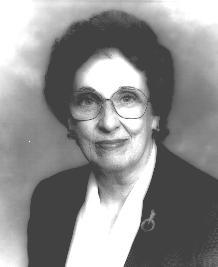Page 242
[Begin Tape 1, Side A]
Clark: This is Mary Marshall Clark. I'm interviewing Eileen Shanahan. This is session number twelve of our oral history and the last session. Today is May 22, 1994, and we're actually in the home of Betsy Wade in New York where we did a video yesterday of Betsy and Eileen.*
Hi.
Shanahan: Hi.
Clark: How's that for an introduction?
Shanahan: Wonderful!
Clark: Okay. All right. We're going to pick up where we left off in the last session, which was the death of the Washington Star.
Shanahan: Yes. And when that sad event—I still miss that paper—happened, I knew that I either had to get a job in a Washington bureau of a newspaper, which is very hard to do because they generally promote their own people to that plum job, and people who know about where they came from, which is valuable, or else I was going to have to leave town. That's how it turned out. I wanted to be as close as I could. I found something driveable—Pittsburgh, a five-hour drive, a forty-five minute flight—and was then into a commuter marriage, which I don't recommend to anybody, and that's really why I quit after two and a half years.
But it was a wonderful job. At the age of fifty-seven to go somewhere where you don't know a single soul. There was actually one other former Star person, a sportswriter, on the other paper in Pittsburgh, and we saw each other once in a while but not much. It was hard for me personally and professionally—my husband was always my balance wheel who would let me scream and shout and stomp and cry and then would say, "Okay, enough already now. You know you're not being realistic, you shouldn't have expected what you expected," and so on.
It's also journalistically—it's hard to learn about a city as an editor. If you're out there on the street as a reporter and you get a sense of the community and the mayor and whatever else you need, it would be much easier. For an editor, it's all coming at you at second-hand, through the eyes of a reporter. And I'm vain enough about my reporting ability to think that if I'd been out there, I would have seen something more than what they saw, or something different.
In fact, I think the fact that the big chains who now own a very large percentage of newspapers with a very large percentage of all the circulation and who move their editors around constantly from place to place—I think that's one of the main causes of the deterioration of local reporting in newspapers today. The reason commonly ascribed for that is that they're saving money, they're filling the papers with wire-service copy from across the country and abroad, which makes you think when you first look at them, "Oh, gee, they're doing a good job of covering the serious news."
But then you look and there's hardly any local news. And saving money is a big part of the reason. But I think part of the reason is that those editors mostly didn't grow up where they are now in the chains, or go to school there, or have any real roots there. And if you don't understand the history, you don't understand
______________________ * The videotaped interview session was not transcribed. It is available for viewing at Columbia University Oral History Research Office, the National Press Club Library, and California State University at Sacramento.

